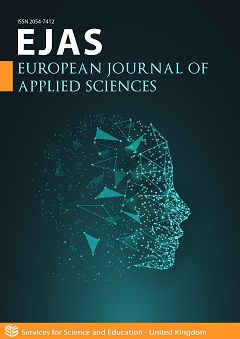The Role of Women’s Schooling on the Economic Expansion of Guinea: Pioneering Sex Equity, Strengthening Labor Force Involvement and Propelling Lasting Evolution to Attain Guinea’s Economic Advancement
DOI:
https://doi.org/10.14738/aivp.1301.18190Keywords:
Women’s Education, Economic Development, Gender Equality, Human Capital, Human GrowthAbstract
This article analyses the noteworthy role of women’s learning’s impact on Guinea’s socioeconomic progress, drawing attention to its capabilities to foster enduring advancement, reduce poverty, as well as encourage equal opportunities across genders. Using a hybrid research approach, the inquiry combines quantitative analyses of national academic instruction and financial statistics with qualitative insights based on interviews with policymakers, educators, alongside women entrepreneurs. The research identifies several obstacles hindering women’s accessibility of learning resources, involving entrenched social customs, resource scarcity, early marriages, along with inadequate structural systems, particularly in rural areas. Gender biases with restricted representation of female populations in leadership further exacerbate these challenges. In spite of these obstacles, findings show that females possessing advanced schooling achieve broadened avenues for income, and heightened employability, as well as enhanced entrepreneurial success. The societal benefits of women’s academic pursuits extend beyond individual gains, encompassing enhanced juvenile and maternal wellness with diminished fertility rates, along with strengthened cross-generational academic outcomes. Educated females contribute significantly toward the collective leadership alongside governance, propelling creativity and equitable progress. The research underscores the value of targeted interventions, incorporating funding for school infrastructure, financial support such as scholarships, together with efforts to confront discriminatory traditions. Collaborating with men as well as boys encouraging fairness between genders is identified as a key strategy for ensuring lasting change. Aligned with the International SDG (Sustainable Development Goals)Framework, particularly Objective 4 (Quality Education) and 5(Gender Equality), this research emphasizes that expanding women’s learning is essential for accomplishing Guinea’s financial ambitions and nurturing a society that embraces diversity. It concludes with a call for stakeholders to prioritize gender-sensitive reforms as a foundation for long-term national progress.
Downloads
Published
How to Cite
Issue
Section
License
Copyright (c) 2025 Mamadou Saidou Diallo

This work is licensed under a Creative Commons Attribution 4.0 International License.






